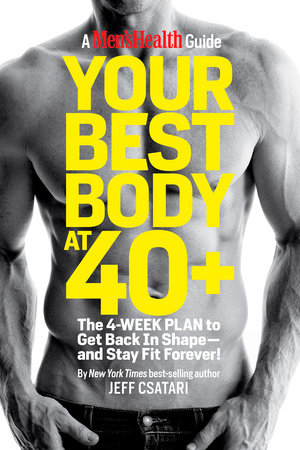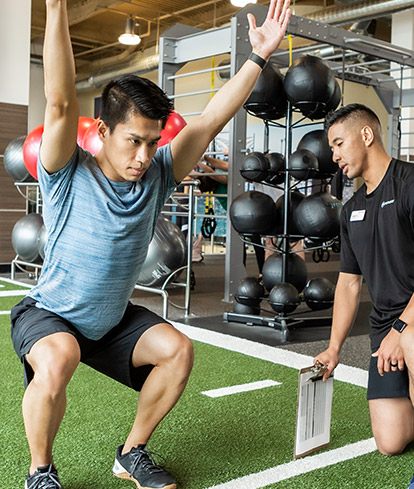
Mark is a certified personal coach in Tampa. He has been in the business for over 15 year. He is an in-home trainer who also offers small-group training sessions. Mark is the Tampa personal trainer you need.
Mark is a personal trainer in Tampa.
Mark is a Tampa personal trainer and owns Equally Fit. He has been an instructor of fitness in the region for more than 25-years. Mark was diagnosed early with Asperger syndrome, but has since become a certified personal coach. Mark understands what it takes for someone to be in good shape and is passionately dedicated to helping others reach their fitness goals.

He has been in the fitness industry for more than 15 years
A Tampa personal training professional can help you lose weight, increase your energy, or simply get in shape. Chris Henry has been working in the fitness industry over fifteen years. He has received numerous awards and certifications along the way. He has also served in the role of lecturer for various universities and groups.
He can be a personal trainer in your home
Maurice Harden has been certified as a MAT specialist. Born in Maryland, he studied at FGCU and earned his Bachelors degree in Sports Management. He also holds a license as a Physical Therapy Assistant. He enjoys skiing, mountain biking (weight lifting), obstacle courses races, cooking, and dancing. He has six years experience in physical therapist.
He offers small group sessions of training
Personal training in small groups is a great way for you to get personalized training with a certified personal training professional. A Tampa personal coach will lead a session that is tailored for a specific group. These sessions are focused on specific fitness goals. They include exercises that increase strength, endurance, agility, and speed. These sessions can also be offered in small groups at many YMCAs throughout Tampa, FL.

He is a member NPTI
National Personal Training Institute, (NPTI), is a national program that certifies individuals in the field personal fitness training. The NPTI program combines classroom-based college courses and hands-on client training simulation. The program gives graduates a diploma. They are also certified in Basic Nutrition, CPR/AED/First Aid, and National Academy of Sports Medicine. It has more than 30 schools throughout the country, and it expanded to Toronto in Canada in 2011. Financial assistance is available to qualified students.
FAQ
How many hours should I sleep each night?
The recommended sleep amount varies based on age, gender, individual needs, and other factors. Most adults require between 7 and 9 hours of sleep each night. Children and teenagers need 10 to 12 hours of sleep per night. As they age, however, this number falls.
Are there any exercises I shouldn't do?
You should always consult with your doctor before starting any new workout routine. You may have injuries or other medical conditions that prohibit you from exercising in certain ways. Also, some activities require special equipment or training. Swimming, for example, requires swimming suits and access to the pool.
What are Resistance Training Exercises?
Resistance training is performed with weights and other objects. Lifting weights, for example, can help strengthen your arms and shoulders, chest, backs, legs, core, and core. Resistance training builds muscle mass, increases bone density, and promotes greater overall strength.
Do I need warmth before I exercise?
Warming up before an activity can reduce muscle soreness, improve performance, and help to prevent injury. Warming up can take many forms, including walking, running or jumping rope, stretching, or cycling. You should start slow and gradually increase your speed and intensity.
How can I start with fitness?
Start small! You can start by taking 10 minutes each week to walk around the block. This will help you learn basic movements and allow your muscles to adjust to the new routine. Once you are proficient in this type of exercise, add more steps and routines to your day.
What happens if my sleep is not enough?
You can't get enough sleep and your brain will not be able to regulate hormones and chemicals responsible for controlling appetite and metabolism. In turn, this can cause you to eat more and gain weight. Lack of sleep also increases stress levels, which can lead to overeating.
What are Cardio Exercises and How Do They Work?
Cardiovascular activities are any exercise that makes your heart work harder than normal. Swimming, cycling, rowing, and jogging are all examples. These activities burn fat and raise your metabolism. They can also help you stay fit by strengthening your heart and lungs.
Statistics
- Globally, 81% of adolescents aged 11-17 years were insufficiently physically active in 2016. (who.int)
- One study showed that adults who watch more than 4 hours of television daily had an 80% higher risk of death from cardiovascular disease. (heart.org)
- Physical activity confers the following maternal and fetal health benefits: a decreased risk of pre-eclampsia, gestational hypertension, gestational diabetes (for example, 30% reduction in risk) (who.int)
- In 2018, the World Health Assembly agreed on a global target to reduce physical inactivity by 15% by 2030 and align with the Sustainable Development Goals. (who.int)
External Links
How To
How to stay fit during pregnancy
Your body changes drastically when you become pregnant. Your metabolism slows down, and you eat less because you're growing a baby inside you. Lack of sleep could make you feel sick. However, there are ways that you can be healthy and still have fun during this exciting time in life.
Before beginning any exercise program, consult your doctor. They can tell you what exercises you should avoid and which ones are safe for you to do. A second thing to do is eat well during pregnancy. This includes eating lots of iron, fiber, protein, and fiber. Third, it is important to drink plenty. Because sweating can cause fluid loss, it's particularly important to drink water while exercising. Don't forget to take care of the feet. You should always keep your feet dry, and wear shoes that provide support. Morning sickness can be caused by eating small amounts of bread or crackers before you get out of bed. You might end up feeling nauseated.
-
Healthy eating habits are important. A healthy diet is vital throughout pregnancy.
-
Stay Active. Daily exercise of at least 30 mins
-
Keep a healthy weight You can lose weight by eating smaller meals and snacks more often.
-
Get Enough Sleep. Sleep should be at least 7 hours each night.
-
Manage Stress. Learn relaxation techniques.
-
Avoid Alcohol. It can lead to miscarriage, and even birth defects.
-
Be Gentle with Yourself. Be gentle with yourself.
-
Take Care of Yourself. You can have someone look in on you if necessary.
-
Relax. Do the things that make your heart happy.